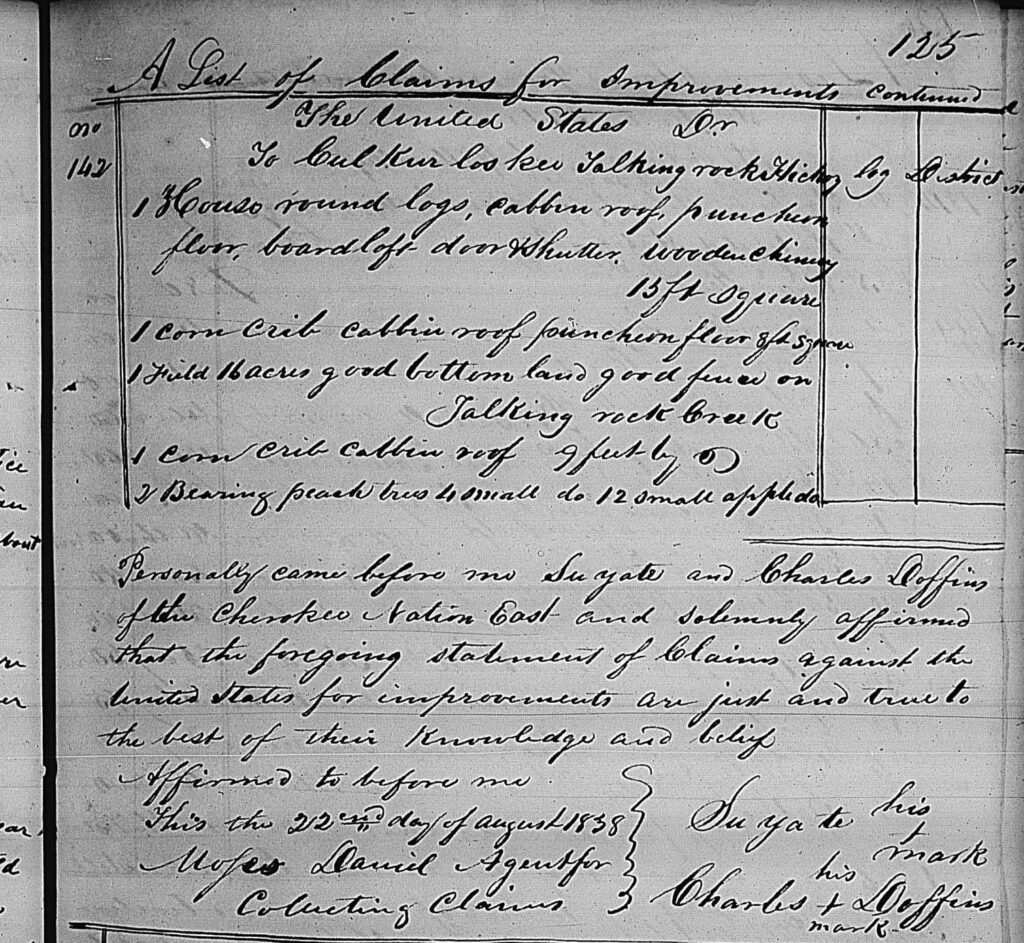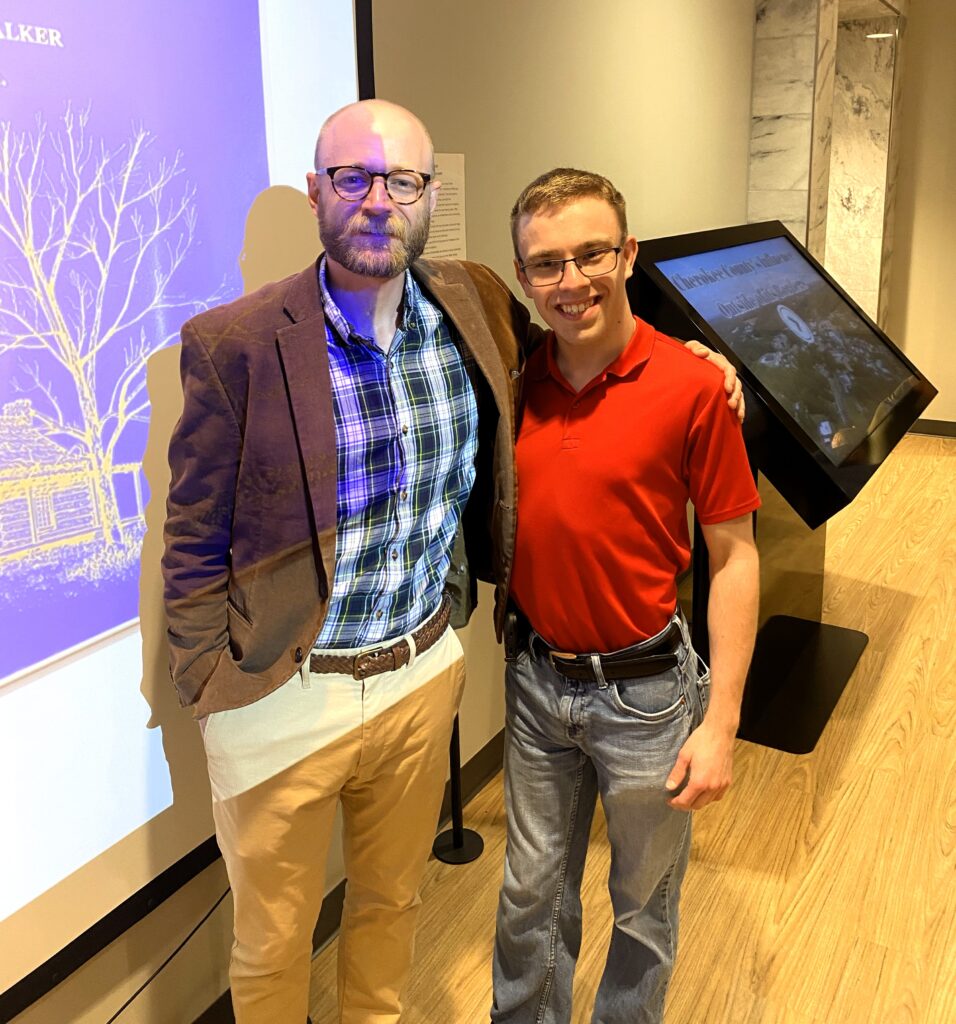

By Suzy Alstrin
Newly transcribed stories of the forced removal of Cherokee Indians during the late 1830s bring a dynamic new Indigenous perspective to historians, thanks to a project directed by Funk Heritage Center Director Jeff Bishop and led by Reinhardt University Assistant Professor of History Andrew Jones, Ph.D. Thanks to the detailed work by Dr. Jones and three Reinhardt students, written claims by Cherokees before and after the Trail of Tears can be more fully understood by scholars, researchers, and Cherokee ancestors.
In a presentation on August 20th at the Cherokee County History Center, Dr. Jones explained that in 2022, the Funk Heritage Center received a grant from the National Endowment of Humanities (NEH) which funded the Cherokee Voices Project. The project focused on increasing indigenous representation in the history of Cherokee removal in North Georgia by documenting their experiences. Over two academic years, undergraduate research interns, Kamille McKinney (RU-2023), Sydney Murray (RU-2024), and Christopher Walker (RU-2024), helped transcribe, analyze, and upload the 1838 and 1842 claims from the Hickory Log District of the Cherokee Nation onto the Trail of Tears Association website.
One example of this work is pictured above. It was translated as follows:
A List of Claims for Improvements Continued
No. 142
The United States
To Cul-kur-los-kee Talking Rock Hickory Log District
1 House round logs, cabin roof, puncheon floor board loft door & shutter wooden chimney 15 ft square
1 corn crib cabin roof puncheon floor 8 ft square
1 field 16 acres good bottom land good fence on Talking Rock Creek
1 corn crib cabin roof 9 feet by 6
2 bearing peach trees 4 small DO 12 small apple
Personally came before me Su-ya-te and Charles Doffins of the Cherokee Nation East and solemnly affirmed that the foregoing statement of Claims against the United States for improvements are just and true to the best of their knowledge and belief
Affirmed before me this the 22nd day of August 1838
Moses Daniel Agent for Collecting Claims
Su-ya-te his X mark
Charles Doffins his X mark
Dr. Jones explained that the unique series of documents detail Cherokee losses, including property and livestock during the forced relocation to Oklahoma. Having these transcriptions online eases access to this significant part of history. Previously, the primary historical sources came from the perspective of white American soldiers, missionaries, or government officials. These Native American claims against the U.S. Government had never been transcribed or referenced. He elaborated, “Our work thus far is only the tip of the iceberg. There are yet thousands of un-transcribed 1838 claims from other parts of Georgia, Alabama, Tennessee, and North Carolina that – once accessible – will also impact the way we think and write about the Native South.”
The documents Dr. Jones’ team focused on include parts of modern-day Cherokee, Fulton, Cobb, Forsyth, Pickens, and Dawson Counties. He expressed, “I am incredibly grateful to share our experience and our findings and hope to bring greater awareness to our local native history. These claims give us more insight into the lives of Georgia’s Cherokee populations in their own voices. It is thus hoped that any future work of this type will utilize the transcribed and digitized claims that we have been working on through the Cherokee Voices Project at Reinhardt.”

